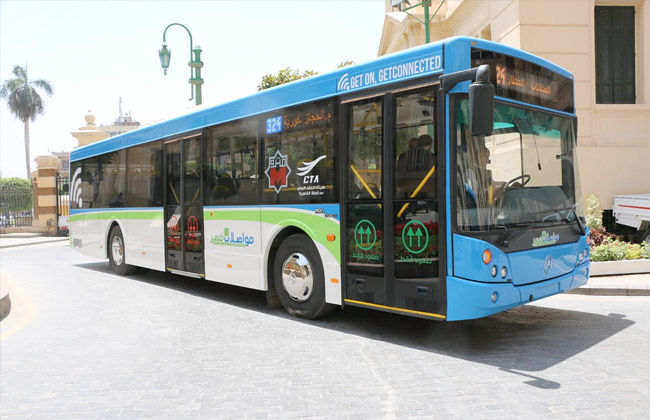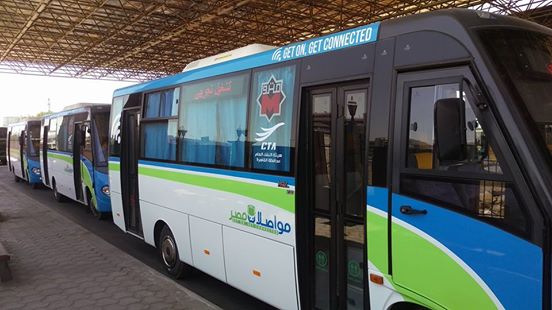
With the launch of the newly-released buses equipped with wi-fi and air conditioning amenities, controversy surfaced social media outlets on whether or not the buses will contribute effectively to transportation services in Egypt’s capital.
The buses, which also feature electronic ticket service, were launched recently by the state-run bus company that cooperated with privately–run bus company ‘Mwaslat Masr’ (translation: Egypt’s Transportation).
Seventy percent of Mwaslat Masr’s shares are owned by the UAE-based Emirati National Group, which helped launch the buses as part of a public transportation project that includes launching 100 mini buses and 80 larger buses in Egypt.
The launch started with a preliminary trial phase that is expected to be complete in July 2018.
The new well-equipped buses cover 18 transportation stations and travel over three lines in different parts of Cairo, according to a statement issued by Mwaslar Masr.
The first line goes from Shoubra to Cairo International Airport.
The second line extends from the al-Mazlat suburb to the airport, while the third goes from the airport to Embaba, according to the statement.
Tickets are priced at LE5, which some consider fair given the step up from governmental buses, however, others in local districts find the fare expensive and unjustified.
Egypt Independent visited two of the stations where the buses are based to obtain feedback on the new service.
Despite the fact that the state-run media outlets announced the new buses have been placed at Abdel Moneim Rayed station in Tahrir Square, the head of the station — who preferred to remain anonymous — told Egypt Independent on Wednesday that the buses have not been sent to their station yet.
However, at Dawran Shoubra station, the new mini-buses were available.
This line starts its trip from Shubra and passes through several stops including Ramsis, Nasr City, Masaken Sheraton, and eventually arrives at Cairo International Airport.

Upon boarding, the driver asks what your destination is to make sure that passengers observed the external board that displays the bus’ route.
The driver then extracts an electronic ticket and explains the new services available on the bus — wi-fi, air conditioning and a power outlet for a cell phone charger at each seat.
“The new buses are to depart from stations based on a specific time schedule, even if the bus is empty [without passengers],” Ahmed Ali, a driver of one of the newly launched mini buses, told Egypt Independent.
He noted that in an effort to guarantee passengers’ comfort and safety, the company’s management obliged all drivers to not allow any passenger to stand inside the bus, and that they are not to exceed the buses’ capacity of 27 seats.
“The new bus service is a good idea, especially in summer times, as the new buses are air –conditioned and are provided with all means of comfort,” said Emad Abdel Rahman, a passenger who works as a receptionist at Cairo International Airport.
Meanwhile, when the mini bus reached one of the stops where a large crowd was waiting to board, there was only room left for a few, and people expressed concern on the matter.
Atef Soliman, an employee in a state–run facility, told Egypt Independent that the launch of such buses is a good deal for those who use public transport on a rare basis, but in his case as an employee who has to use public transport daily, the cost is impractical.
According to state-run newspaper Al-Ahram, Cairo Governor Atef Abdel Hamid said that the buses are part of the governorate’s strategy to increase the number of buses in the city and elevate transportation services provided to citizens.
He added that the modern amenities available on these buses are a way to encourage citizens to abandon their vehicles in favor of the newly-launched buses, thereby decreasing traffic congestion.




